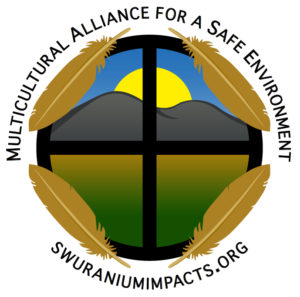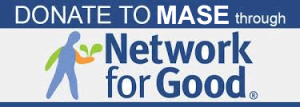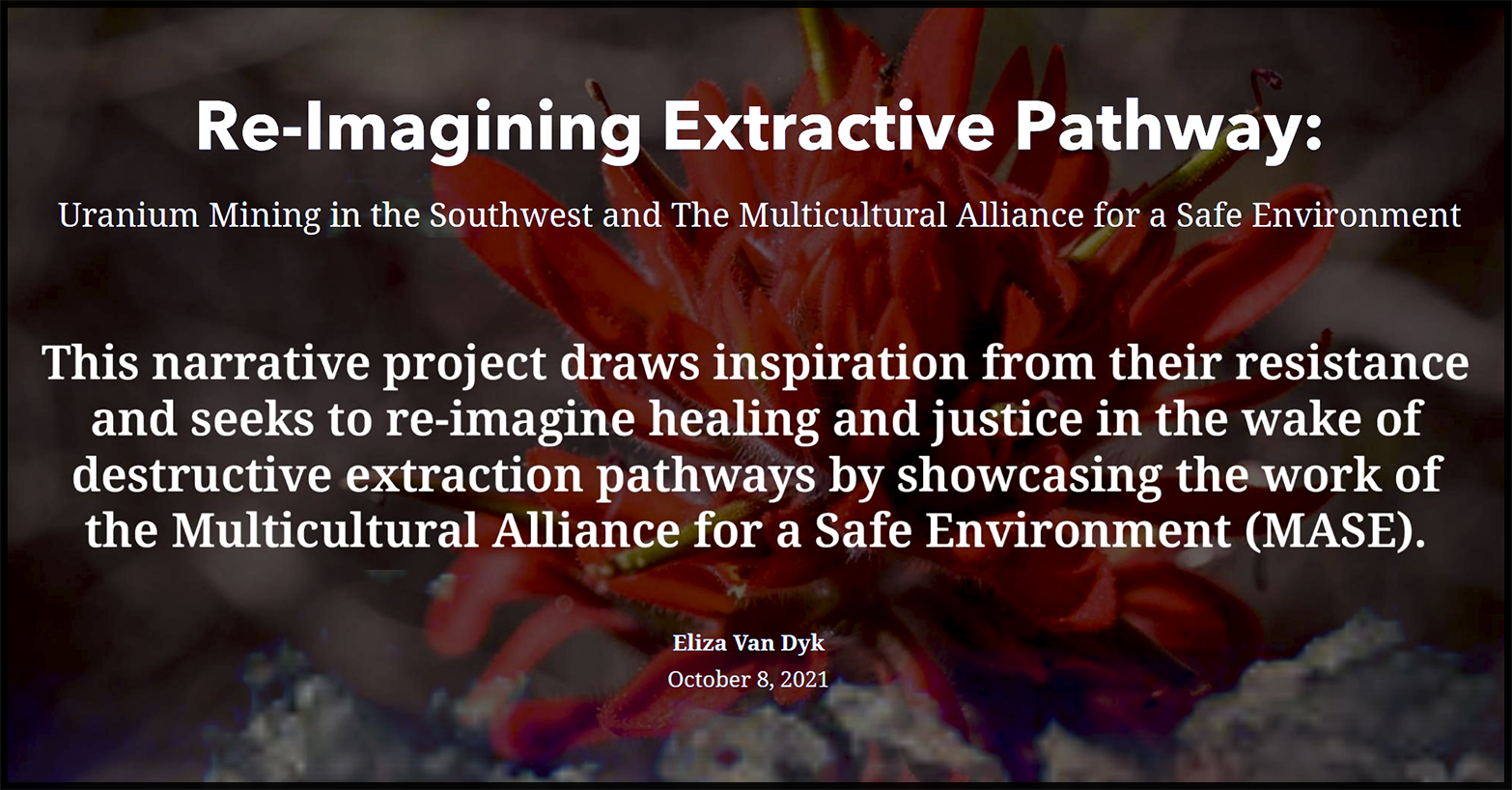Indigenous Knowledge – Youth Research Justice Camp
By Nadine Padilla, Coordinator, MASE (Multicultural Alliance for a Safe Environment) Coalition, Albuquerque, NM. DataCenter and Multicultural Alliance for a Safe Environment (MASE) partnered in late 2009 to bring 12 young people together for an Indigenous Knowledge and Research Justice Camp. The 2-day camp was the first step in building a network of young people that can participate in and eventually lead the current uranium battles, offering their skills and talents as politically-oriented organizers, artists, and performers. We explored the different realms of knowledge: mainstream knowledge, experiential knowledge, and traditional and grassroots knowledge. We discussed how community, experienced, and traditional grassroots knowledge provide a person with a stable foundation, whereas mainstream knowledge doesn’t. Community, traditional, grassroots, and experienced knowledge make you who you are and are necessary to continue community life. Ideas and lessons that come from the earth are time-tested and more foundational. Oftentimes, mainstream knowledge distracts us from what is really important, for instance, how does Paris Hilton really affect our lives? Mainstream knowledge can serve a good purpose and share information that everyone should have access to and know in order to and build a common awareness. Knowledge can come from multiple communities and be shared. One of the most memorable moments from the camp was when participants were asked to draw their life story on a single piece of paper and how uranium mining has impacted their lives. Every participant had a personal story to share on how uranium mining continues to impact our lives, from having a family member that used to work in the mines, from seeing old mining equipment abandoned in their communities, to having family members that have gotten sick and passed on from uranium contamination. Working on uranium issues, it is clear that policy-makers and those in power usually only value information that comes from western science. Numbers, statistics, data, western science, and written documents make knowledge “valued.” In our communities, our knowledge is not always documented in these ways and is usually not considered acceptable or relevant. We also decided that the value of knowledge goes up as you need it (i.e. in the woods a computer isn’t valuable at all, whereas traditional knowledge would be more important). We decided to do a video project that will challenge these ideas and help us reclaim and document our community’s knowledge so that we can share it with others. As our training camp ended, our participants walked away with flip cameras and tapes to continue to build upon the lessons of the training even after the training ended. Participants are free to choose to create a video diary in which they share thoughts, insight, and ideas that arise after the training session has ended; or interview friends, family members, and others in order to document the knowledge that already exists in our communities; or to use on our group project, a film project that explores how uranium continues to affect the lives of our families and communities. After collecting video, participants will send their cameras and tapes to organizers for processing and editing. The final product will be a video that can be used to upload to YouTube, to send to legislators to educate them on the uranium issue, and to be put on Ch 27, the local TV station.





